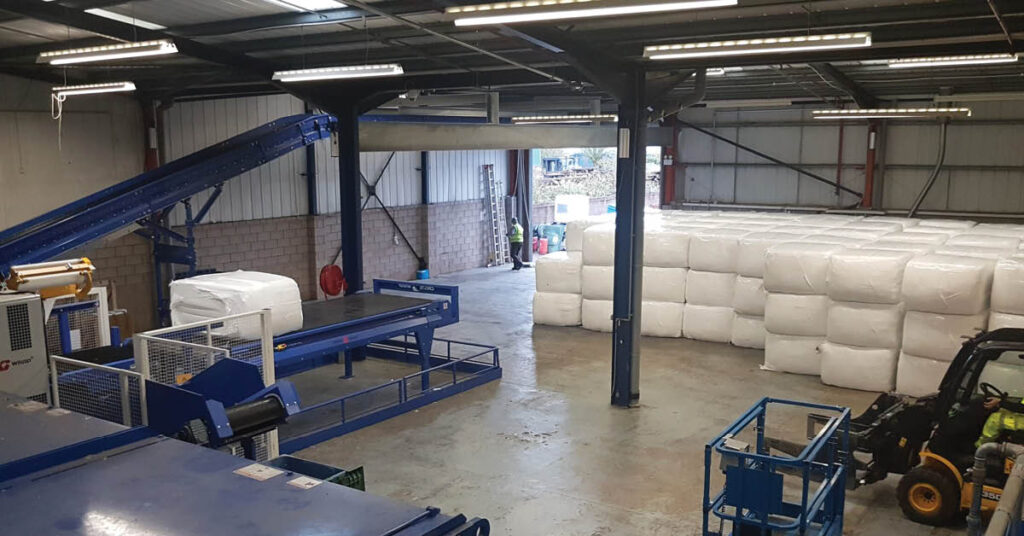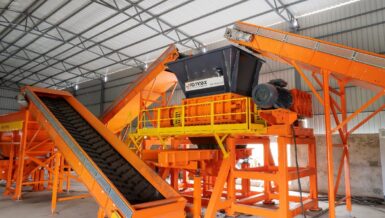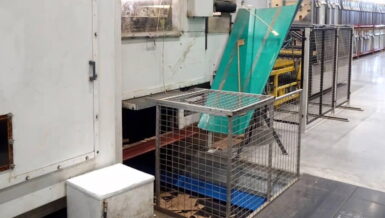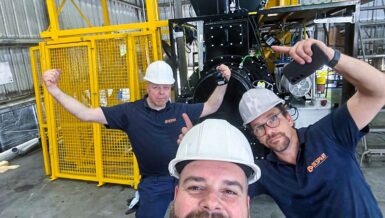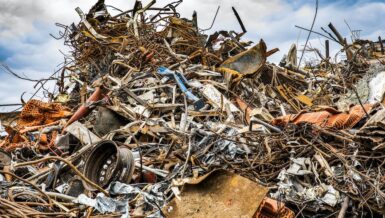Automation is no longer a “nice-to-have”, it’s essential. By investing in flexible, high-efficiency machinery, recycling plants can mitigate external risks while amplifying productivity and cost control.
At Cross Wrap, we have been at the forefront of automation transformation for over three decades, delivering machinery solutions that reduce transport and handling costs, and improves working environment safety.
Smart solutions to cut paper and plastic recycling costs
Paper and Plastic recycling costs vary widely depending on country, plastic type, and processing methods. But across the board, key cost drivers include transport, labor-intensive feeding, energy consumption, and machine maintenance.
At the heart of many inefficiencies is manual labor, especially during the material feeding and bale wire cutting stages. These early steps are not only time-consuming but also costly and potentially hazardous. That’s where automation makes a difference.
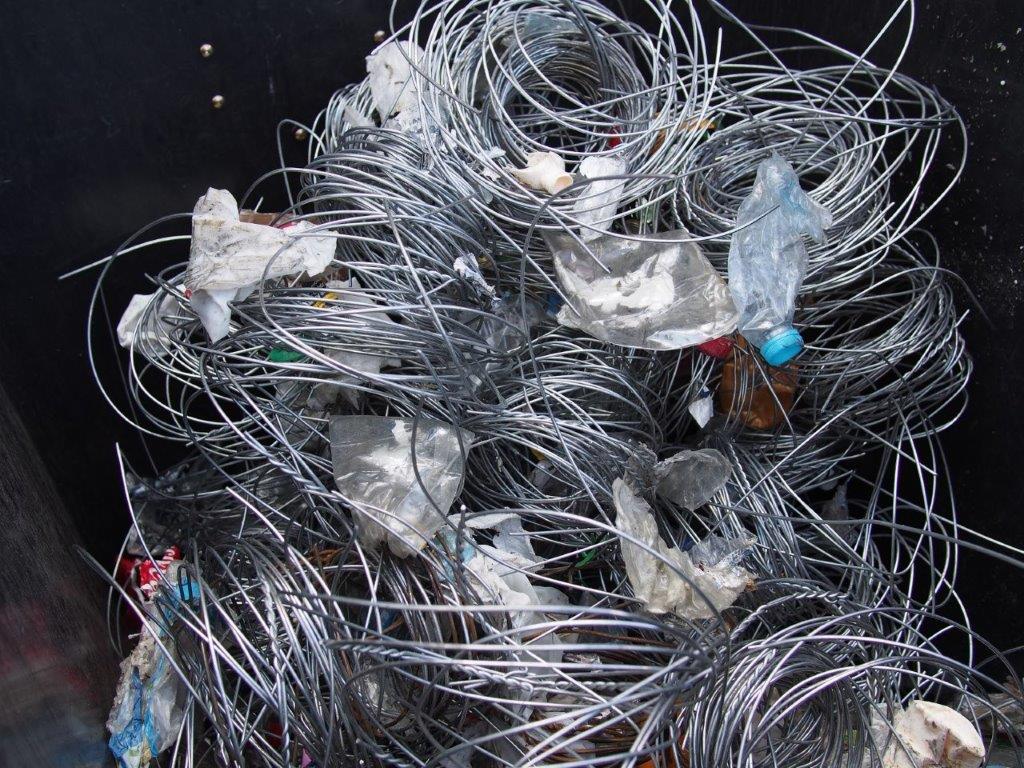

Dewiring Machine, developed by Cross Wrap, automates the bale wire removal process, saving up to one operator’s workload per shift. The machine cuts, removes and coils wires into neat bundles for recycling, ensuring a clean and efficient start to the process. This early-stage automation enables smoother material flow, higher throughput (up to 80 tonnes per hour), and improved safety without compromising quality.
Cross Wrap Coil shredder is an addition for Dewiring machine. Clean wires can be effortlessly recycled as metal recyclers pay more for clean material.
From a cost-efficiency perspective, the Dewiring Machine also stands out for its low energy consumption. It switches to standby mode when idle, further reducing energy usage. Combined with minimal maintenance needs and a long service life, it offers predictable operating costs and long-term savings.
In short, investing in automated solutions like the Dewiring Machine can significantly lower labor and energy costs, while boosting safety, scalability, and productivity.
Cross Wrap’s Wire Cutters offer a compact, affordable entry point into automation, particularly for facilities seeking to optimize bale opening without a large upfront investment.
Functioning as a lightweight version of the CW Dewiring Machine, the Wire Cutters automate the wire-cutting stage of bale handling. In paper mills with ragger rope systems, for example, the bale wire cutting becomes fully automatic, eliminating the need for manual intervention and ensuring a smoother, safer start to the recycling process.

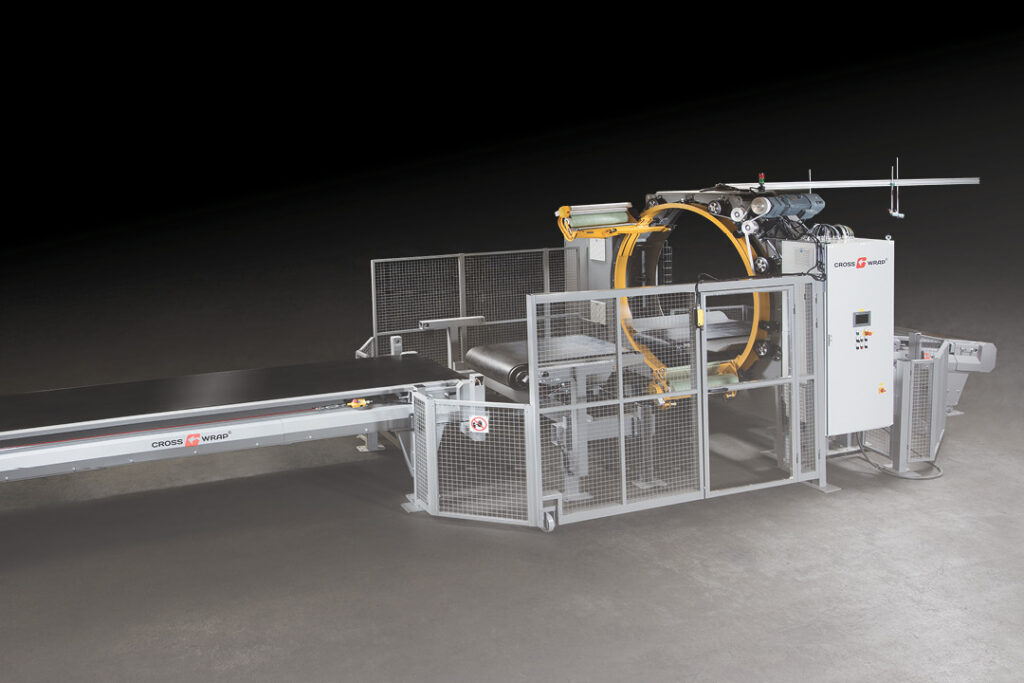
Proven expertise in waste wrapping
With over 30 years of experience in the waste sector, Cross Wrap is a global pioneer in bale wrapping technology. Our solutions have been developed in close cooperation with waste operators worldwide, leading to machines that are durable, automated, and ready to meet the toughest waste handling requirements.
Automated bale wrapping is a key solution for improving waste handling efficiency and cutting operational costs. By tightly sealing bales in durable, weather-resistant film, wrapping enables safer transport, cleaner storage, and more compact loads, reducing both handling time and transportation expenses.
Why choose square bales in waste handling?
Square bales offer significant advantages over round bales in the waste industry, especially for high-capacity operations. Their denser structure and stackable shape make them far more efficient for transport and storage: six square bales can hold the same volume as nine round ones, reducing handling time, transport costs, and storage space requirements.
Square bales also offer greater flexibility. Bale size, weight, and wrapping film use can be adjusted depending on the baler and wrapper setup, allowing for customized, material-specific solutions. Cross Wrap’s bale wrappers and Direct Bale Wrapper are designed to work with both channel and twin-ram balers, offering either film-only or net plus film wrapping, depending on operational needs.
Conclusion: Investment in automation delivers ROI on several fronts:
- Labor savings and safety: Reduced manual handling cuts costs while safeguarding workers.
- Efficient flows under uncertainty: Scalable, high-throughput systems help plants adapt to shifts in supply and demand.
- Lower transport and handling costs: Tight, clean bales plus automated wire removal reduce loading times, damage risk, and transport inefficiency.
In today’s challenging climate, this level of operational resilience can be a game-changer.

